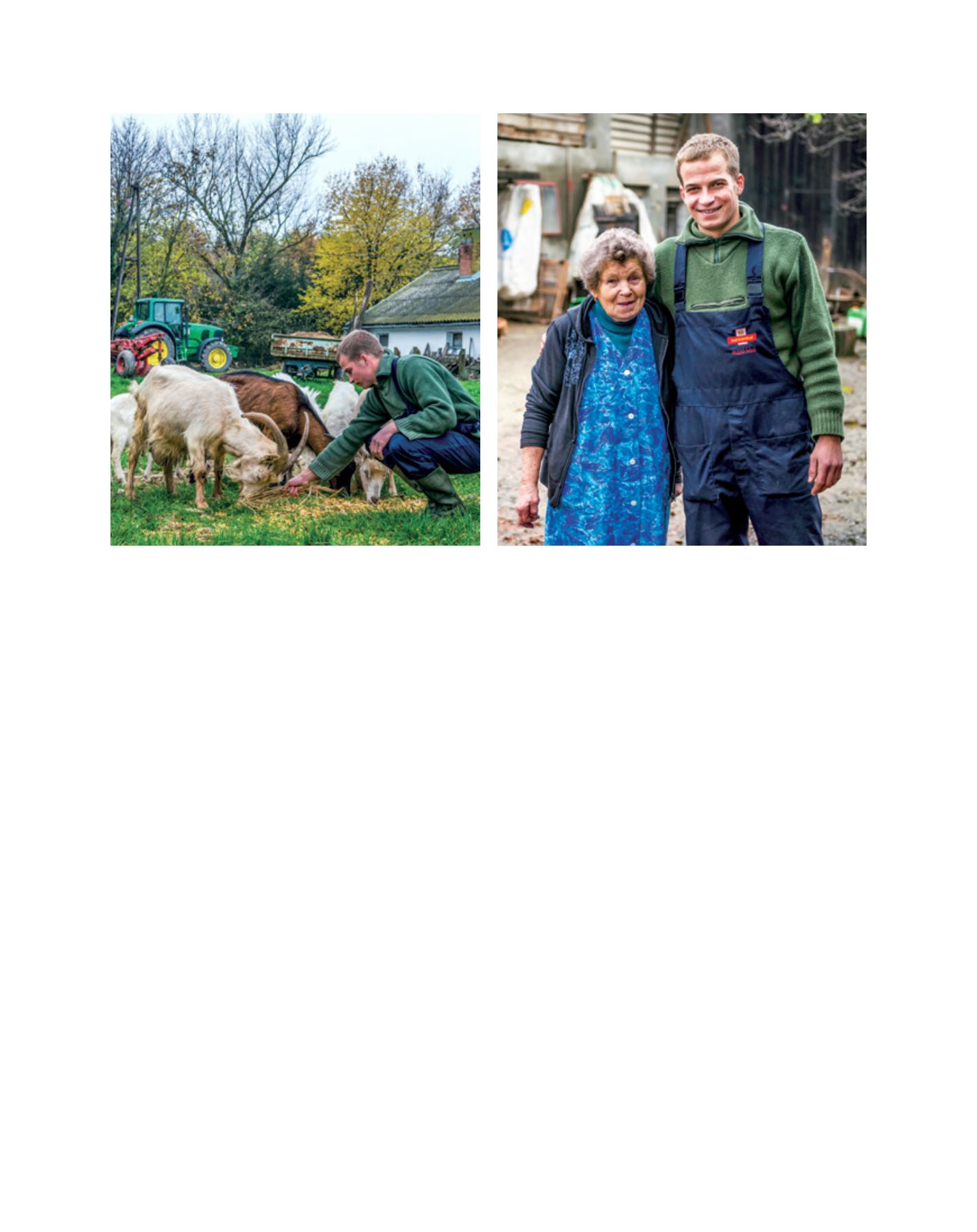

[
] 238
Image: Csaba Pelsöczy, Ministry of Agriculture of Hungary
Family farming contributes to economic development in rural areas by creating rural jobs and securing rural livelihoods
One of the primary goals of the Hungarian Government is to
provide support to the rural population to improve their living
conditions and to enable them to successfully access markets
with their traditional products. The adoption of the new food
safety regulations concerning local markets and the simplifica-
tion of authorization processes has been a great asset to enable
small-scale producers to sell their products locally. According
to current regulation, only smallholders can sell their agricul-
tural products and processed foods at local producer markets.
In Hungary the traditional means of short supply chains
– such as local markets and roadside sales – are wide-
spread. However, modern forms like online sales, common
purchase groups and community-supported agriculture
are less developed than in many Western European and
North American countries. The Ministry of Agriculture
of Hungary encourages participation in the short supply
chain. Participating farmers are usually the smallest ones
(private persons or micro-enterprises), so they have weak
assertiveness and they are inexperienced in complex forms
of cooperation. Therefore it is important to provide them
with focused support.
Providing access to natural resources, especially to land, is
essential for the development of family farms. The New Land
Act, which was adopted in 2013, strengthens family farms
with respect to large-scale agricultural farms, by shifting land
use towards smaller farm sizes. In the management of state-
owned agricultural land in Hungary, guiding principles have
been adopted recently. These are in line with the
Voluntary
Guidelines on the Governance of Tenure of Land, Fisheries and
Forests in the context of National Food Security
, which were
drafted by the Food and Agriculture Organization of the
United Nations and adopted by the Committee on World
Food Security in 2012.
Agricultural land is also allocated for the purpose of boost-
ing rural employment. The Social Land Programme holds a
prominent role in handling local unemployment, boosting
rural employment – especially for socially disadvantaged
groups – and creating sustainable development of a region.
Agricultural parcels may be handed over to municipalities’
asset management to promote the implementation of the
Social Land Programme. The size of the land parcel allocated
to one person in the programme may not exceed one hectare.
Transfer of land parcels to asset management for the purpose
of the programme may be for a two-year minimum or 15-year
maximum period. The Social Land Programme contrib-
utes to increasing rural communities’ potential to maintain
their population and to better use local resources, creating a
well-planned course for production and sales that includes
self-sufficiency, market sales and sustainability as well as miti-
gating the effect of geographical disadvantages.
Similarly to many countries, the ageing of the rural popula-
tion – especially farmers – is a great challenge for Hungary.
The average age of a farmer is 56 years, and this has increased
by five years in the last decade alone. To stop this tendency
urgent action is needed. Farming should be a respected
and profitable profession, and a rural lifestyle should again
become a desirable option for youth. To achieve that, complex
development of a wide range of sectors is required including
education, extension services, rural infrastructure and public
services. Targeted support can be provided for young farmers,
as declared in the Hungarian Rural Development Programme
for the 2014-2020 period, to assist them in starting their first
D
eep
R
oots
















